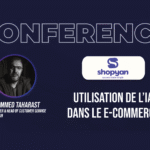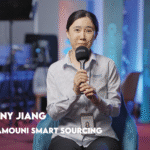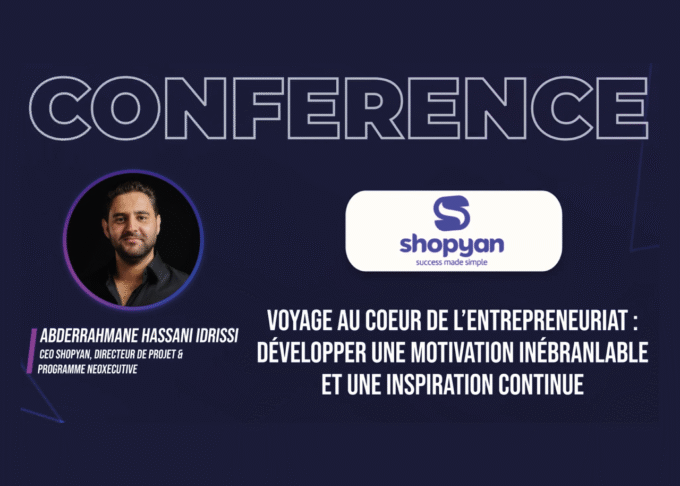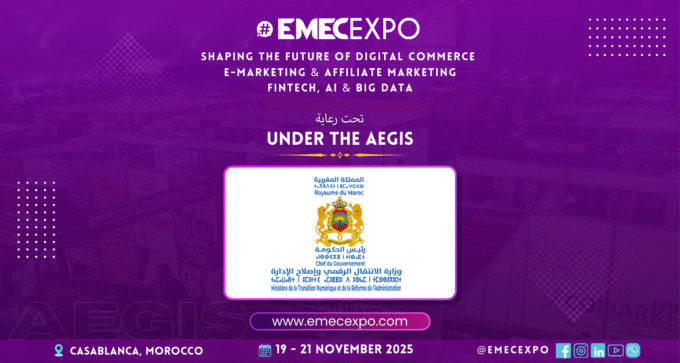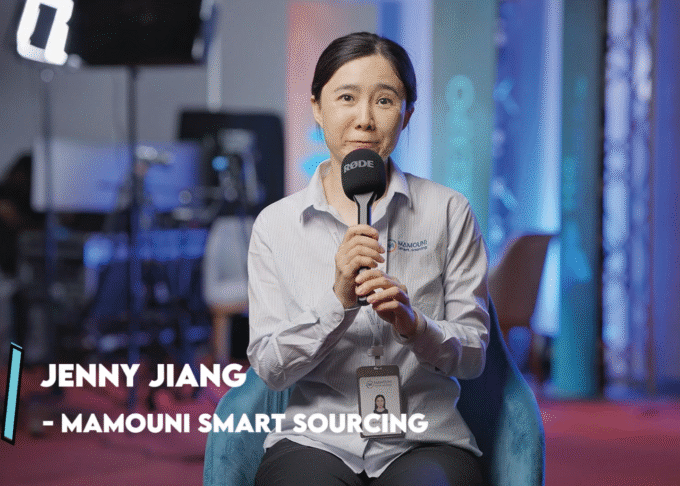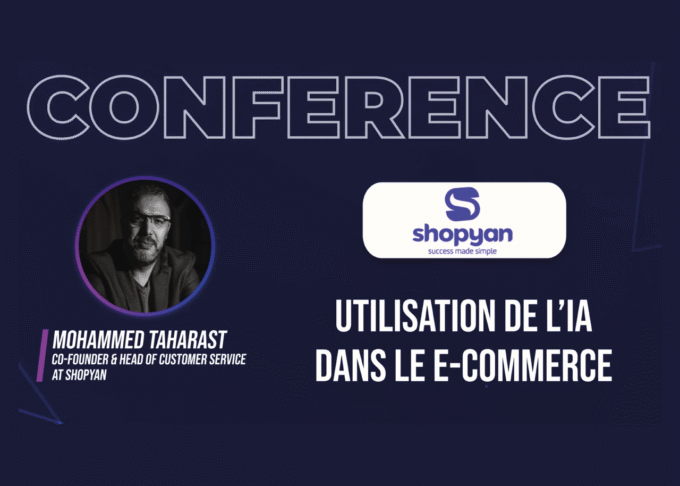The EMEC EXPO 2024 conference featured a compelling discussion on the trends and future of content creation for businesses, bringing together industry experts to dissect the challenges and opportunities within this dynamic field. This article summarizes the key insights shared during the “CONFERENCE MEDIA DIGITAL INVEST” panel, offering a narrative and informative overview grounded in real-world examples and solution-oriented perspectives, as reflected in the panel’s discourse.
The Power of Content in Company Development: A Case Study with Moustapha Swinga
The panel commenced by exploring how content creation contributes to the development of companies and their products. Moustapha Swinga, known for his ability to simplify complex information for diverse audiences, highlighted the challenge that many institutions face in effectively communicating with the public. He emphasized that information is often presented in a way that is not easily understood by the majority. Moustapha’s work focuses on simplifying information across various sectors, including commercial, political, and social domains.
When questioned about how his content can effectively convey a company’s idea or advertise a product seamlessly without causing audience discomfort, Moustapha clarified that his YouTube content is primarily independent and aims to address issues within Moroccan society, particularly those arising from a lack of communication by institutions. He illustrated this with the example of explaining complex statistical indicators to the Moroccan public, enabling understanding where confusion previously reigned. His strategy, involves delving deeply into the cause-and-effect relationships to ensure comprehensive understanding, a method akin to academic research. Moustapha distinguishes this approach from advertising, which he engages in separately and less frequently.
Navigating the Content Creation Process: From Solo Endeavor to Team Collaboration
The discussion then shifted to the intricate process of content creation, with Adil Taouil providing a detailed look into his operational model. He pointed out that while many content creators start as individuals with a passion and unique style, achieving sustainability necessitates financial viability. Adil shared his experience of transitioning from a solo creator, often relying on self-funding, to leading a team of around 20 people.
He emphasized that high-quality content, particularly that involving in-depth writing, can be costly, with some scripts costing as much as 6,000 MAD and average video production expenses ranging from 10,000 to 15,000 MAD. This necessitates building a team with diverse skills, including researchers for writing, illustrators, video editors, and distribution specialists. Adil highlighted a significant deficit in writing skills within the digital content creation landscape in Morocco, presenting it as a lucrative area for aspiring creators. His team includes academic researchers focused on effectively explaining complex topics in an accessible manner.
Adil detailed his business model, which he believes is unique in Morocco for independent content creation. Unlike traditional media funded by large corporations, his model, and similar efforts by creators like Amine Laaouni, face the challenge of funding. While YouTube revenue provides some income (e.g., 10,000-15,000 MAD per month for Adil), it often falls short of covering the production costs. This leads to a reliance on sponsorships, which, in the Moroccan context, faces hurdles due to the perceived risk aversion and short-sightedness of private sector companies. Adil argued that investing in critical and thoughtful content offers long-term benefits for society and businesses alike, yet this vision is not always shared by potential sponsors.
Crafting Effective Advertising: Adil’s Dual Approach
Adil further elaborated on his approach to creating successful advertising campaigns for various brands. He outlined two primary ways his team secures projects:
- Inbound Requests: Companies reach out with a brief outlining their product and key messages.
- Proactive Concept Development: Adil’s team develops complete concepts and presentations, then seeks out suitable sponsors.
Regardless of the initial approach, the crucial step involves transforming a basic brief (e.g., a product is fast, has a nice color, is easy to buy, and is affordable) into a compelling story that resonates with the audience. Adil stressed the importance of storytelling in engaging viewers. He shared an example of creating an advertisement for mattresses, where instead of focusing on the product itself, the narrative centered on the concept of sleep and its benefits, subtly integrating the mattress technology as a solution. This approach resulted in high engagement and positive feedback, demonstrating the effectiveness of creative and user-centric advertising.
Adil emphasized that his process involves creating a comprehensive presentation for clients, including storyboards, scripts, and color schemes, ensuring alignment before production. This professional approach distinguishes his method from more informal communication. He also highlighted the iterative nature of the creative process, involving client feedback and adapting ideas while maintaining the core message and Adil’s unique style. He underscored the benefit of working with a diverse team, leveraging individual expertise to create high-quality content more efficiently than a solo creator could.
The Dynamics of Sponsorship and Brand Association
Abdelrazzak Yousfi offered insights into the broader ecosystem connecting content creators, brands, and audiences. He highlighted the challenges Moroccan content creators face in securing sponsorships compared to traditional advertising in television. While TV commercials command significantly larger budgets, digital advertising often sees budget constraints, despite the targeted reach and problem-solving potential of digital platforms.
Abdelrazzak introduced the concept of a “win-win-win” scenario where brands, content creators, and the audience all benefit. He explained that traditional advertising on television, with its broad reach and high costs, can be inefficient for brands seeking specific target audiences. Digital content creation, on the other hand, allows for precise targeting, reaching the right audience with relevant messages through trusted content creators. He used the analogy of a doctor diagnosing a specific ailment to illustrate how targeted marketing through content creators is more effective than mass advertising.
He emphasized that brands are increasingly looking to associate with content creators to build an emotional connection with their audience, a concept known as “brand linking“. By aligning with a creator that the audience trusts and admires, brands can subtly influence consumer perception and preference. Abdelrazzak cautioned emerging companies against solely focusing on performance marketing and neglecting the importance of building brand credibility through collaborations with content creators. He advocated for allocating a portion of the budget to brand building, recognizing that audience trust in the creator translates to trust in the brand.
Abdelrazzak also touched upon the challenges of the Moroccan market, where sometimes brands prefer to engage with non-Moroccan content creators with large followings, overlooking local talent. He stressed the importance of supporting local content creators to foster a thriving digital ecosystem.
Furthermore, Abdelrazzak discussed the rigorous due diligence and ethical considerations he employs when facilitating partnerships between brands and content creators. He highlighted Moustapha’s strong principles and refusal to compromise his integrity for financial gain, emphasizing the importance of authenticity and credibility for long-term success. Abdelrazzak views ethical conduct in this space as “beneficial and self-serving,” as maintaining credibility is crucial for both the content creator and the facilitator.
Building a Sustainable Content Creation Ecosystem
The panel also addressed the challenges of building a sustainable content creation ecosystem in Morocco. Moustapha pointed out that unlike creators like “الدحيح” who have large teams (e.g., 15 writers), most Moroccan creators operate with limited resources. He highlighted the complex process behind high-quality educational content, involving extensive research, writing, editing, and fact-checking. He noted a lack of awareness and understanding of these intricate processes within the Moroccan digital landscape.
Moustapha emphasized the difficulty of scaling content creation in Morocco, citing the challenge of consistently producing high-quality videos due to time constraints related to research, networking (to gather information not readily available online), and production. He also echoed the sentiment regarding sponsorship challenges, highlighting the pressure to constantly produce content to satisfy algorithms while simultaneously securing funding.
A potential solution discussed was the direct support from the audience, where viewers contribute financially to sustain content creators. However, the panelists acknowledged that this concept is still in its early stages in Morocco, where there’s a prevailing expectation of free online content. Moustapha argued that for content requiring significant effort and providing value, direct audience support could offer greater freedom and sustainability for creators.
The Essence of Effective Content Creation: Authenticity and Connection
In concluding remarks, Adil emphasized that the core of impactful content creation lies in authenticity and the emotional connection between the creator and the audience. He likened the creative process to carefully preparing a tagine, requiring the right ingredients and patience to achieve the best outcome. He advised aspiring creators to focus on their genuine voice and experiences, conducting thorough research and translating their insights into relatable stories.
Adil stressed that the “feeling” or emotional resonance is more critical than technical aspects like production quality in establishing a genuine connection with viewers. He encouraged creators to embrace experimentation and learn from mistakes, emphasizing that originality develops over time through consistent effort and self-awareness. He cautioned against the trap of believing oneself superior to the audience, reinforcing that content creation is a human endeavor built on shared connections.
The discussion at EMEC EXPO 2024 provided a comprehensive overview of the content creation landscape in Morocco, highlighting both the immense potential for businesses and the significant challenges faced by creators. The insights shared by Moustapha, Adil, and Abdelrazzak underscored the evolving relationship between content, brands, and audiences, emphasizing the critical roles of authenticity, strategic partnerships, and audience engagement in navigating the future of digital content creation.



